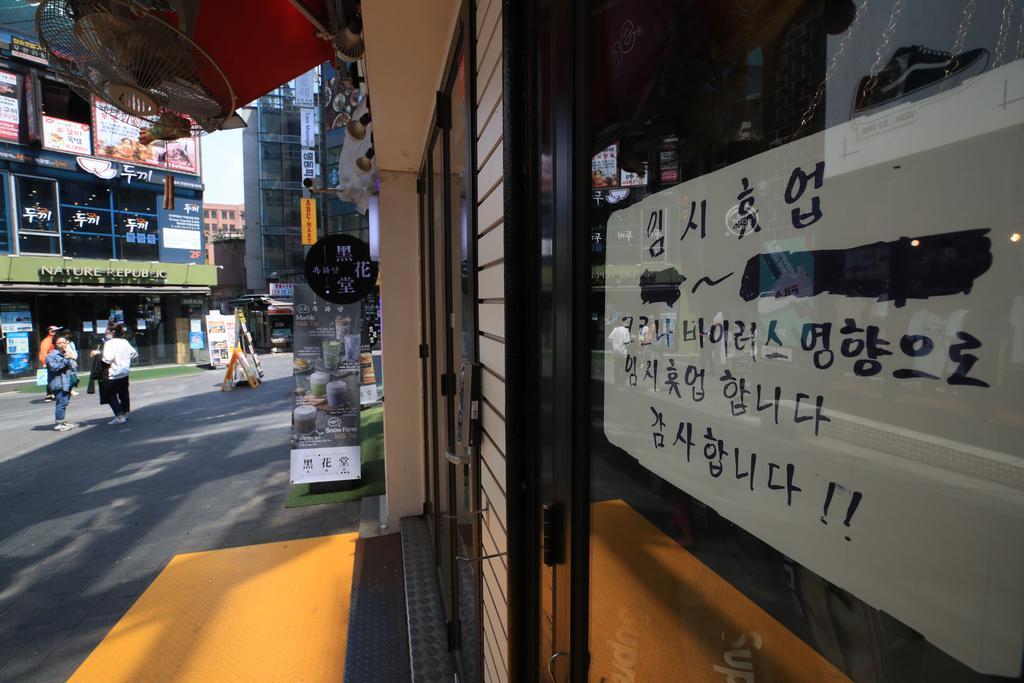Service output in major cities, provinces dips in Q3 on virus fallout
By YonhapPublished : Nov. 17, 2020 - 13:12

Combined service output in major cities and provinces declined 1.7 percent on-year in the third quarter as the new coronavirus outbreak hit the service sector involving face-to-face contact, data showed Tuesday.
Service output in six cities and nine provinces retreated in the July-September period, with Incheon, west of Seoul, suffering the biggest on-year fall with an 11.6 percent decline, according to the data from Statistics Korea.
"Service output contracted on-year in the third quarter, led by declines in production in transport, warehouses, accommodations and food service," the statistics agency said.
The service industry has been hit hard by the COVID-19 pandemic as people refrain from visiting offline shops and having in-person contact out of concerns about virus infections.
Only Seoul -- home to about one-fifth of South Korea's 51.6 million population -- saw service output rise, by 2.2 percent on-year, aided by gains in the financial and insurance sectors, according to the data. Service output generated in the administrative city of Sejong stayed flat.
Retail sales across the nation gained 1.8 percent in the third quarter from a year earlier, due to an increase in non-store, auto and fuel-related sales.
The southern resort island of Jeju reported the sharpest on-year decline of 30.4 percent in retail sales.
Retail sales in the western port city of Incheon and Seoul declined 9.4 percent and 7.8 percent on-year, respectively.
Industrial output across the nation, meanwhile, rose 0.9 percent in the third quarter from a year earlier, according to the data. (Yonhap)
Service output in six cities and nine provinces retreated in the July-September period, with Incheon, west of Seoul, suffering the biggest on-year fall with an 11.6 percent decline, according to the data from Statistics Korea.
"Service output contracted on-year in the third quarter, led by declines in production in transport, warehouses, accommodations and food service," the statistics agency said.
The service industry has been hit hard by the COVID-19 pandemic as people refrain from visiting offline shops and having in-person contact out of concerns about virus infections.
Only Seoul -- home to about one-fifth of South Korea's 51.6 million population -- saw service output rise, by 2.2 percent on-year, aided by gains in the financial and insurance sectors, according to the data. Service output generated in the administrative city of Sejong stayed flat.
Retail sales across the nation gained 1.8 percent in the third quarter from a year earlier, due to an increase in non-store, auto and fuel-related sales.
The southern resort island of Jeju reported the sharpest on-year decline of 30.4 percent in retail sales.
Retail sales in the western port city of Incheon and Seoul declined 9.4 percent and 7.8 percent on-year, respectively.
Industrial output across the nation, meanwhile, rose 0.9 percent in the third quarter from a year earlier, according to the data. (Yonhap)



![[Exclusive] Korean military set to ban iPhones over 'security' concerns](http://res.heraldm.com/phpwas/restmb_idxmake.php?idx=644&simg=/content/image/2024/04/23/20240423050599_0.jpg&u=20240423183955)

![[Graphic News] 77% of young Koreans still financially dependent](http://res.heraldm.com/phpwas/restmb_idxmake.php?idx=644&simg=/content/image/2024/04/22/20240422050762_0.gif&u=)



![[Pressure points] Leggings in public: Fashion statement or social faux pas?](http://res.heraldm.com/phpwas/restmb_idxmake.php?idx=644&simg=/content/image/2024/04/23/20240423050669_0.jpg&u=)










